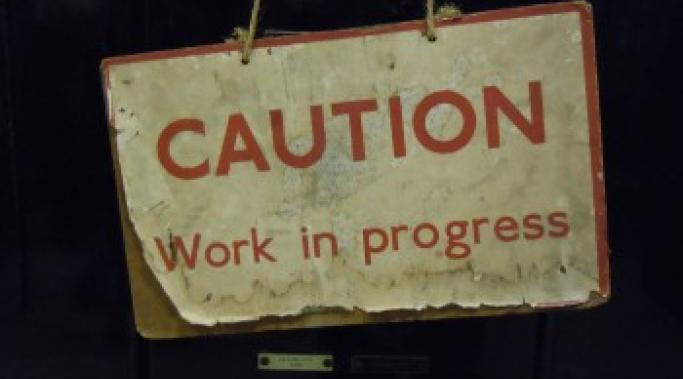A dissociative identity disorder (DID) diagnosis is complex and sometimes people blame themselves for their dissociative identity disorder. When people learn that they have DID, they tend to have a lot of questions, and unfortunately, there aren't always as many answers. People want to know what caused their DID. People want to know who is to blame. Sometimes that blame ends up turning inward. So what can you do when you start blaming yourself for your dissociative identity disorder?
Impact of DID Diagnosis
At one year after my dissociative identity disorder diagnosis, I can say I have learned a lot. When you receive a dissociative identity disorder (DID) diagnosis, your life changes (Criteria for Dissociative Identity Disorder in the DSM-5). You learn to adjust your life as a multiple in a world designed for singletons. Those adjustments aren't easy, but you try and figure it out. Some changes can lead to progress, while other changes can set you back. So does living with DID get easier over time? Is one year after my dissociative identity disorder diagnosis easier than day one?
Dissociative identity disorder (DID) is just one of several diagnoses listed in the dissociative disorders section of the Diagnostic and Statistical Manual of Mental Disorders (DSM-5). Many people live with dissociative symptoms, but don't meet all of the criteria necessary for a diagnosis of DID. When this is the case, a different diagnosis -- other specified dissociative disorder (OSDD) -- can be more fitting. These diagnoses all have dissociation in common, so what makes them different?
Disclosing a dissociative identity disorder (DID) diagnosis is a personal choice. There are many options regarding dos and don'ts of disclosure, and all of the pros and cons should be considered before making a decision. It is especially important to consider the risks of disclosing a DID diagnosis, and be prepared for any negative consequences that may come as a result of being open.
I am living with dissociative identity disorder and I can't just "get over it." Would you tell someone with diabetes to "just get over it?" Dissociative identity disorder (DID) and other mental illnesses are illnesses. They all have causes, treatments, and greatly affect the individuals that have them. Mental illness is not a choice. It cannot be switched off and on at will. No one can wake up and decide they aren't going to be mentally ill that day. So why do some people expect those with mental illnesses like DID to just get over it?
Life with dissociative identity disorder (DID) is a journey full of new discoveries, growth and understanding. It is also a journey full of denial, confusion, and pain. Just when you think you have a grasp on life with DID, something (a new alter, or a new memory, perhaps) comes along and shakes everything up. Life with DID can be a difficult journey, but it's not an impossible one.
"How are you?" is a commonly asked question, but for those of us living with dissociative identity disorder (DID), the answer is not so simple. A person may seem alright on the outside, but can be hiding a tremendous amount of despair on the inside. One part may very well answer, "Great!" while another part wants to answer, "Horrible!" Most times, when living with DID, we end up telling people we're okay -- but are we really okay?
Dealing with denial in dissociative identity disorder is key. Denial is a defense mechanism we have likely all engaged in at various points in our lives. At times, denial can be a useful method to help us cope. When it comes to your dissociative identity disorder (DID), however, denial can lead to a breakdown in system communication and can hinder treatment efforts.
A diagnosis of dissociative identity disorder (DID) can be overwhelming and confusing and part of the reason can be the differences in DID symptoms. In order for a DID diagnosis to be made, a person has to fit certain criteria. After diagnosis, people may seek out further information in order to learn more about their symptoms and what their diagnosis means (What Is DID?). They may also seek support by finding others who also have DID. But what happens when that information doesn't exactly fit the mold of one's own DID experiences and the people they meet don't share the exact same DID symptoms?
Dissociative identity disorder (DID) is often misdiagnosed, but the right diagnosis is essential for anyone experiencing a mental illness. Treatment plans, therapeutic interventions, and psychiatric medication choices rely heavily on a person's diagnosis. But what happens when the diagnosis is wrong?



